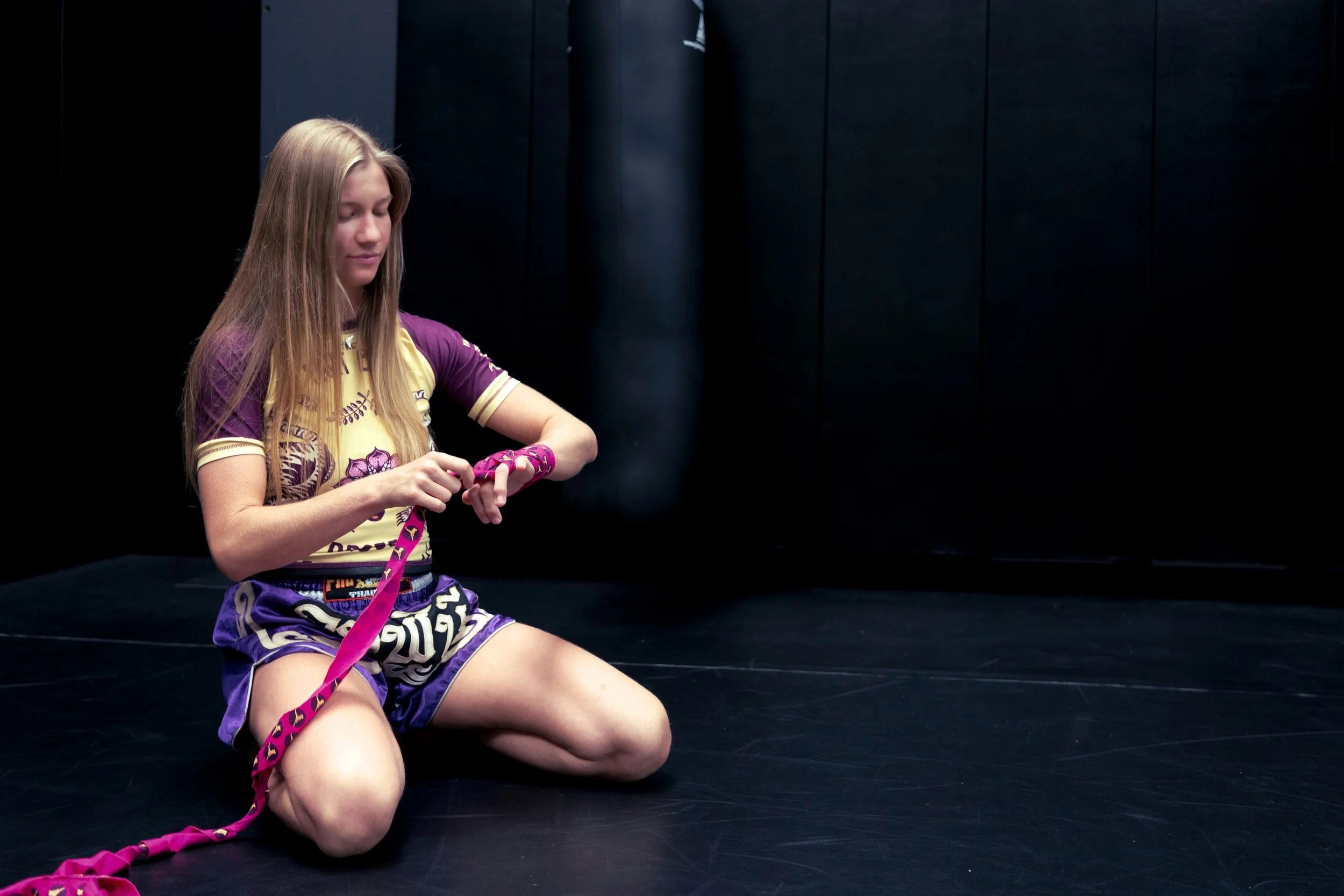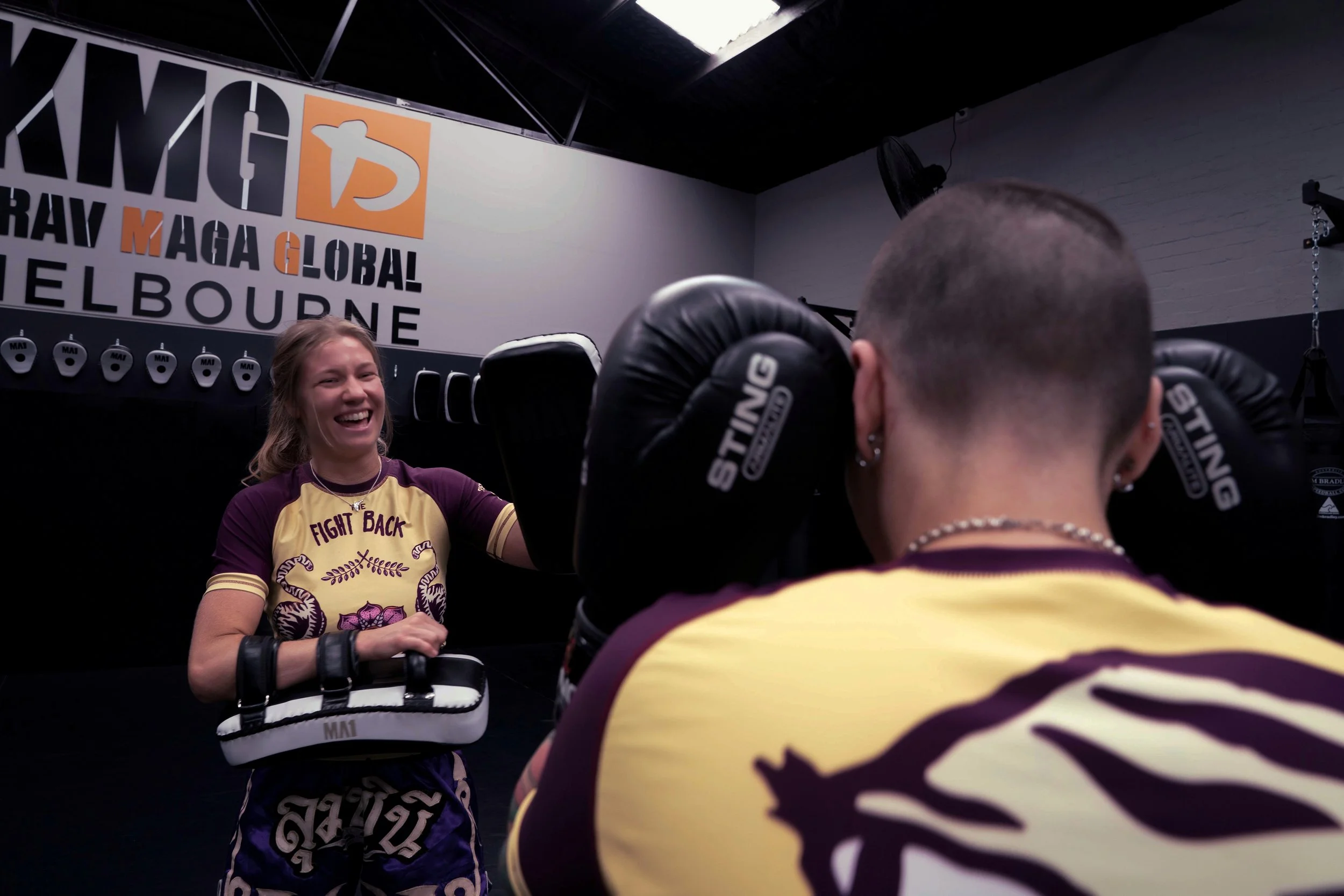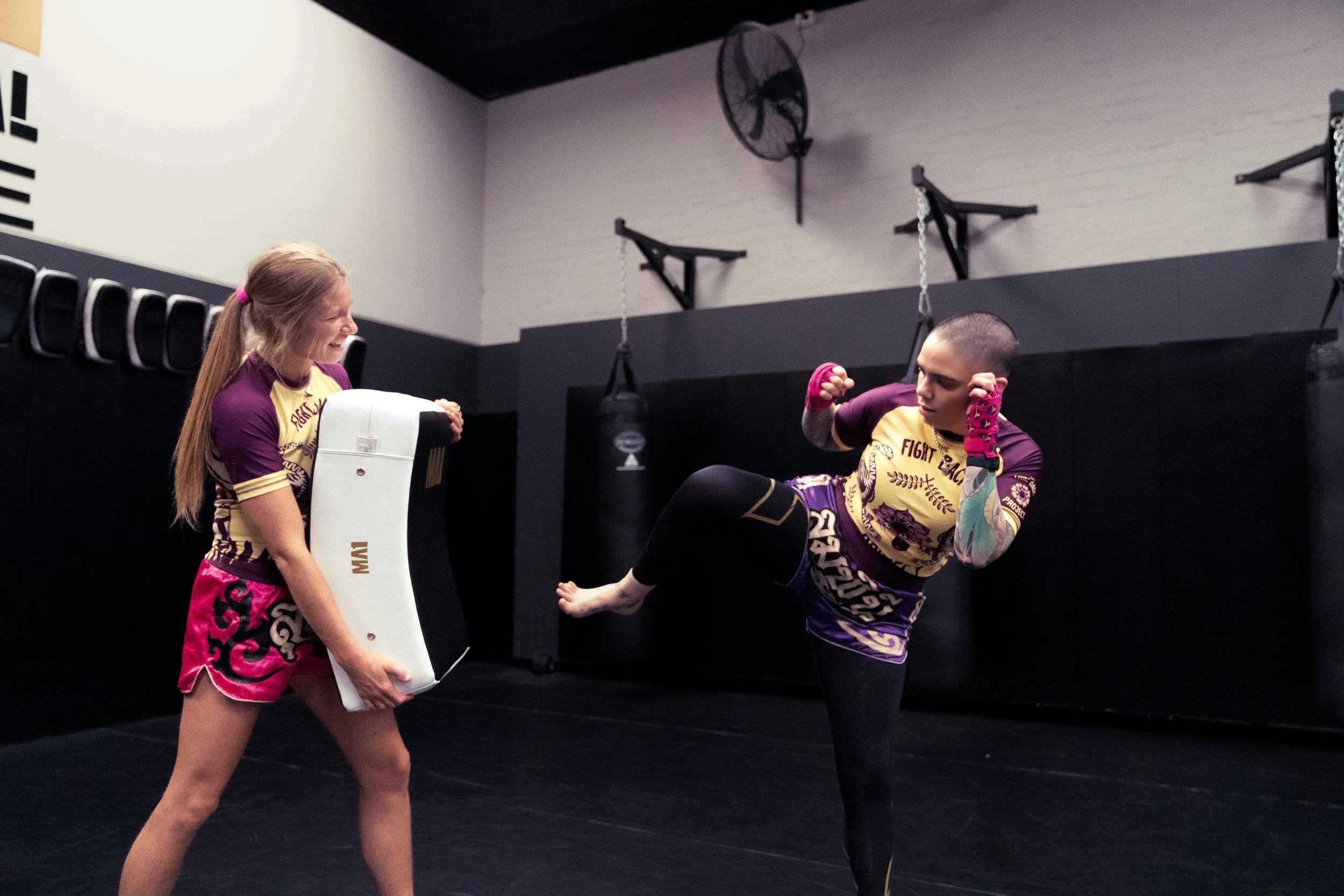How Can Trauma-Informed Kickboxing Help My Relationship with My Body?
The journey towards recovery from an eating disorder can make engaging in movement difficult. How can you safely move your body without triggering a relapse? One option is a unique style of kickboxing which has gained recognition for its potential to aid women in their recovery: trauma-informed kickboxing. By combining the principles of trauma sensitivity and interoception, Georgia and the team at Conscious Combat offer a holistic adjunct to recovery that focuses on rebuilding the mind-body connection. In this blog, we will explore how trauma-informed kickboxing helps women with eating disorders by teaching them interoception, ultimately supporting their healing process.
Conscious Combat Club
Conscious Combat is not fighting. It combines consciousness with the physicality of martial arts to allow us to move from a state of self-defence to offence. By allowing ourselves to explore our vulnerabilities and process our trauma, we are able to discover our body’s full strength and capability. By teaching combat in a conscious way, guided by trauma-informed principles, we aim to help people expand their window of tolerance and connect to their bodies.
The Conscious Combat Club started as virtual classes in November 2020. Australia had just experienced one of the worst bushfire seasons in its history and the world was still in the throes of the pandemic. Trauma was all around us and it was disproportionately affecting women. In response, we created the Conscious Combat Club to offer a safe space for women living with trauma to reclaim their body, confidence and strength through trauma-informed kickboxing. When Melbourne emerged from lockdown we joined the team at Person Centred Psychology & Allied Health and the rest as they say, is history.
Trauma informed kickboxing means teaching aligned to the principles of safety, trust, support, collaboration and respect. We strive to help our clients move toward safety through our intake process, language, environment and procedures. We build trust by doing the things we say we’ll do and not doing the things we promise not to. We foster a culture of support by creating spaces to connect with peers who share your lived experience. Our collaborative approach means that no two classes will look the same. We use invitational language and celebrate being told “no” to help our clients practise making choices and setting boundaries. We respect the needs of women by being an explicitly women’s only program. We welcome all women. No ifs, buts or maybes. If you identify with womanhood you're in the club.
Interoception: (Re)connecting to your body
Interoception refers to the ability to perceive and interpret the internal sensations of our bodies. For individuals with eating disorders, disrupted interoceptive awareness can manifest as a disconnection from their body's cues for hunger, fullness, and emotional states. This disconnection often leads to a reliance on external factors, such as calorie counting or restrictive eating patterns, to guide their eating behaviors. Trauma-informed kickboxing plays a crucial role in reestablishing interoception by encouraging participants to reconnect with their bodies through physical movement and focused awareness.
The Role of Kickboxing in Interoception
Kickboxing, with its dynamic and engaging nature, offers an ideal platform for cultivating interoception skills. Through kickboxing training, women with eating disorders can develop a heightened awareness of their body's sensations, such as heart rate, breathing patterns, muscle tension, and energy levels. As they engage in various exercises, such as learning techniques or striking pads, they are encouraged to tune in to their bodies, recognizing the unique signals and sensations that arise during physical activity.
Benefits of Trauma-Informed Kickboxing for Women with Eating Disorders
1. Improved Body Awareness: Trauma-informed kickboxing promotes a renewed sense of body awareness, allowing individuals to connect to their bodies in a new way. When you experience your body as a trusted friend who helps move in ways that bring you joy, it reduces the experience of seeing your body as a project in need of constant change.
2. Empowerment and Self-Efficacy: Engaging in kickboxing empowers women with eating disorders by instilling a sense of strength, control, and confidence. As they progress in their training, they experience a growing belief in their physical abilities, which translates to increased self-efficacy in other areas of life.
3. Emotional Regulation: Kickboxing serves as a cathartic outlet for releasing stress, tension, and pent-up emotions. Through physical exertion, women can experience emotional regulation and learn healthy coping mechanisms.
4. Community and Support: The Conscious Combat Club is a supportive community where women can connect with others who share similar experiences. This sense of camaraderie fosters a supportive network, reducing feelings of isolation and enhancing the recovery journey.
Final thoughts
Trauma-informed kickboxing provides a potentially transformative pathway for women with eating disorders to reconnect with their bodies, heal from trauma, and develop interoceptive awareness. By integrating trauma sensitivity and interoception techniques into kickboxing training, individuals can rebuild their mind-body connection and move towards a more balanced and nourishing relationship with themselves. This empowering approach offers hope and healing, illustrating the profound impact of physical activity and mindfulness on the recovery journey.
Author: Georgia Verry
Conscious Combat Club






